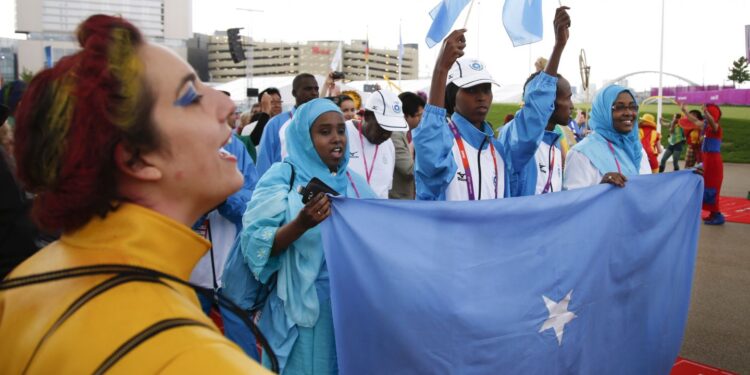
All through historical past, nice nations have typically been referred to as upon to make troublesome choices that affect the destiny of total areas. Immediately, the US faces such a second in its coverage in the direction of Somalia. In an period of shifting alliances and heightened world competitors, America’s pursuits within the Horn of Africa will likely be finest served by persevering with to assist Somalia’s territorial integrity. By doing so, the US reinforces its strategic place and builds on its longstanding report of efficient safety cooperation with Somalia—a partnership that has superior counterterrorism efforts and bolstered regional stability.
The Horn of Africa, lengthy a crucible of battle, now hovers at a vital juncture. Clan-based ambitions threaten to fracture Somalia’s nationwide cohesion. But all these teams, divided by lineage however sharing a standard Somali heritage, needn’t turn out to be separate states. Permitting one area to interrupt away would encourage others to observe swimsuit, resulting in a harmful domino impact of fragmentation. Such fractures danger balkanizing the area, perpetuating instability, and handing extremist teams like Al Shabab fertile floor to regroup. Against this, supporting Somalia’s unity helps maintain the safety setting that has allowed U.S.-Somali collaboration to weaken terrorist networks over time.
Allow us to be clear: granting worldwide recognition to any secessionist motion would open a Pandora’s field. We’d like look no additional than the aftermath of Sudan’s partition, which didn’t yield lasting peace however somewhat entrenched battle and struggling. We should not danger repeating such a tragedy in Somalia. As a substitute, the US should stay dedicated to Somalia’s sovereignty inside its acknowledged 1960 borders—a permanent coverage that has helped stabilize one of many world’s most strategically very important areas.
On this setting, world opponents are keen to use any vacuum. Rivals to American pursuits, actively pursuing affect throughout the area, stand able to leverage instability to advance their strategic and financial pursuits on the expense of America’s place. Weak, fragmented entities are extra prone to under-the-table offers, useful resource extraction, and outdoors interference. Sustaining Somalia’s unity helps restrict such alternatives, making certain that U.S. pursuits usually are not undercut by a malign competitor benefiting from turmoil.
The safety stakes are significantly excessive. Whereas ISIS has misplaced floor in different elements of the world, its management now eyes Africa as a brand new frontier. Latest information suggests senior ISIS figures are relocating to areas the place governance is weak and unity is fraying. A divided Somalia would distract the central authorities from counterterrorism operations and disrupt the successes already achieved by way of shut U.S.-Somali safety cooperation. Against this, a unified Somalia can direct its full vitality towards combating extremist teams, serving to be certain that these harmful organizations don’t discover a new foothold to threaten American or regional safety.
Ethical duty calls to us as properly. The Horn of Africa is not any stranger to humanitarian crises—its folks face displacement, climate-driven hardships, and financial adversity. Fragmenting Somalia would additional entrench these issues, turning clan variations into flashpoints for violence and leaving susceptible populations much more uncovered. By supporting a cohesive Somali state, Washington encourages equitable illustration, financial improvement, and the broader situations crucial to deal with root causes of instability. In so doing, the US stands not just for its personal strategic pursuits but in addition for a safer and simply future for thousands and thousands of Somalis.
Somalia’s useful resource potential provides one other dimension to the need of unity. Its coastal waters maintain promise for substantial vitality improvement, which might foster shared prosperity if managed beneath a steady, centralized authority. Fragmentation would ignite disputes over assets and maritime boundaries, probably resulting in renewed battle and missed alternatives. A unified Somalia, conversely, can foster transparency, entice accountable funding, and guarantee its folks profit from these assets—all whereas reinforcing the steady setting through which U.S. pursuits can flourish.
Some might argue that endorsing secessionist claims provides a swift answer to lingering grievances. Nevertheless, the US doesn’t search shortcuts that undermine long-term stability. America’s energy has at all times rested on principled assist for unity, rule of regulation, and inclusive governance. By serving to Somalia strengthen its establishments, improve safety forces, and foster inclusive political dialogue, the US ensures that clan affiliations enrich nationwide id somewhat than fracture it into competing states.
The selection earlier than us is obvious. We are able to endorse divisions that may unravel the progress made in constructing Somalia’s safety capability, or we will reaffirm our assist for the unity of a nation whose stability is important to the Horn of Africa and to American pursuits. For many years, the U.S. has acknowledged Somalia’s sovereignty and benefited from a productive counterterrorism partnership. Now just isn’t the time to desert this stance.
By standing firmly behind a unified Somalia, we select lasting stability over extremely dangerous short-term fixes. We protect a safety setting that retains extremist networks off stability, deny alternatives for strategic opponents to undercut U.S. affect, and defend a area whose stability is integral to world commerce and counterterrorism efforts. By way of foresight, diplomacy, and precept, we may help Somalia keep its hard-earned unity whereas advancing and defending America’s enduring pursuits within the Horn of Africa.
Dr. Dahir Hassan Abdi is the Ambassador of Somalia to the U.S.
Supply: realclearworld.com









